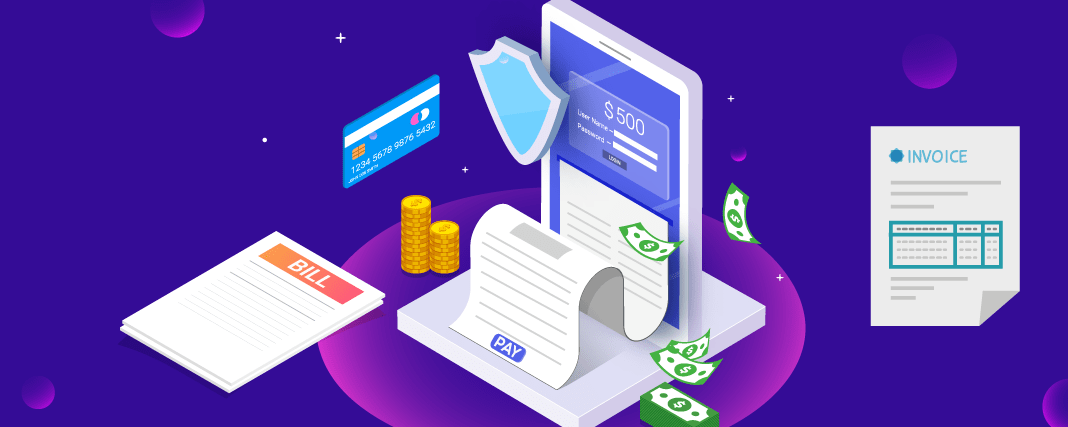An employee’s overall expenses, including wages and salaries, bonuses, benefits, commission, extra allowances are all covered by Payroll. The amount of money spent on an employee in a month varies; it is not fixed (it depends on various reasons such as sick leave, annual leave, maternal leave, or overtime).
Payroll is generally associated with issuing paychecks: it is an extreme part of a business for legal and financial reasons.

Payroll usually is considered as an expense in accounting; in larger organizations, there is a whole unit set for payroll or it is outsourced to different organizations to get work done (mostly to prevent colleagues from seeing each other’s monthly salary), whereas startups tend to manage their own payroll.
Invoicing on the other hand is essential for small businesses because invoices are business documents that enable companies to get paid for their services. The document used in listing products and services provided by a business to a client to pay is known as the invoice. Invoices are used by businesses for different purposes; to request timely payment from clients, to track sales, to track inventory, to forecast future sales, and also to record business revenue for tax filings. Invoice demonstrates a client’s obligation to pay for a product or a service rendered.
Invoices and payroll are intertwined. Not only are both major when it comes to the accounting department, but invoices are also needed to keep a positive cash-flow which can be used towards payroll. It is great to switch to payroll when the size of the business starts increasing and demands are high. You need to stop tracking expenses or cash flow manually, rather opt to use the services of payroll. Debitoor invoicing software makes managing your company’s payroll pretty much easier. It gives you the option to categorize expenses as well. For instance, you can mark the “wages and salaries” category and choose from a number of sub-categories including medical expenses, sick leave, etc.
Payroll companies provide clients with different services related to the business’s payroll need specifics. This includes processing employee work hours, cutting checks, directly depositing funds, and ensuring that the right amount is paid to employees and on time.
However, there is more to just depositing funds, tracking time, etc. Payroll companies tend to do the following as well;
- Handle all payroll compliance issues at both state and local levels
- Generate and distribute electronic payroll records to all relevant parties involved
- Record and check employee attendance as well as clocking schedules
- Oversee to it that accurate payroll taxes and deductions are made
Reasons Why Small Business Can Benefit From Payroll Services
- Payroll providers help you save on headcount: The most expensive asset of every business is its people. Recruiting and hiring the right personnel is very necessary for your business but this should be done within your company’s budget.
- Payroll providers help you maintain employer compliance: working with experienced payroll providers comes with a lot of benefits. As part of their payroll package, they will provide services and resources critical to your business that you might not have thought of. Some of these include employment poster compliance, state unemployment insurance, and garnishment payment servicing.
- They manage to recruit and people at large: with payroll’s people management software, it is quite easy for them to assist in recruiting. When it comes to onboarding, it is never cheap and usually requires outside help from recruiting agencies. It is better to have payroll providers fill in the gap so as to save your business some cost.
They oversee Human Resources rules and regulations: The cost, time, and stress of human resource blunder are taken off. Also, the best way to prepare ahead and prevent HR blunders is to provide a clear and concise handbook for employees. You can also get HR experts to come in to answer issues bothering employees as well.
- They help a business avoid the unnecessary fine and penalty fee: though taxes can’t be avoided, and the risk of auditing is usually low yet costly when it comes to small businesses, it is very common for the Internal Revenue Service (IRS) to enforce penalties on companies for tax errors. They see to it that you are not flouting the rule of paying your necessary taxes; social security taxes, Medicare, federal income tax, etc. so as not to attract fines and penalties from the IRS when they come into the audit.
Conclusion
Invoicing is as important as payroll since they are intertwined. All you need to know is the exact time to use this and when is necessary to switch. Each’s advantages and disadvantages to your business.
Further Reading:
Challenges Managers of Remote Teams Must Know
Everything You Need to Know About Desktime




